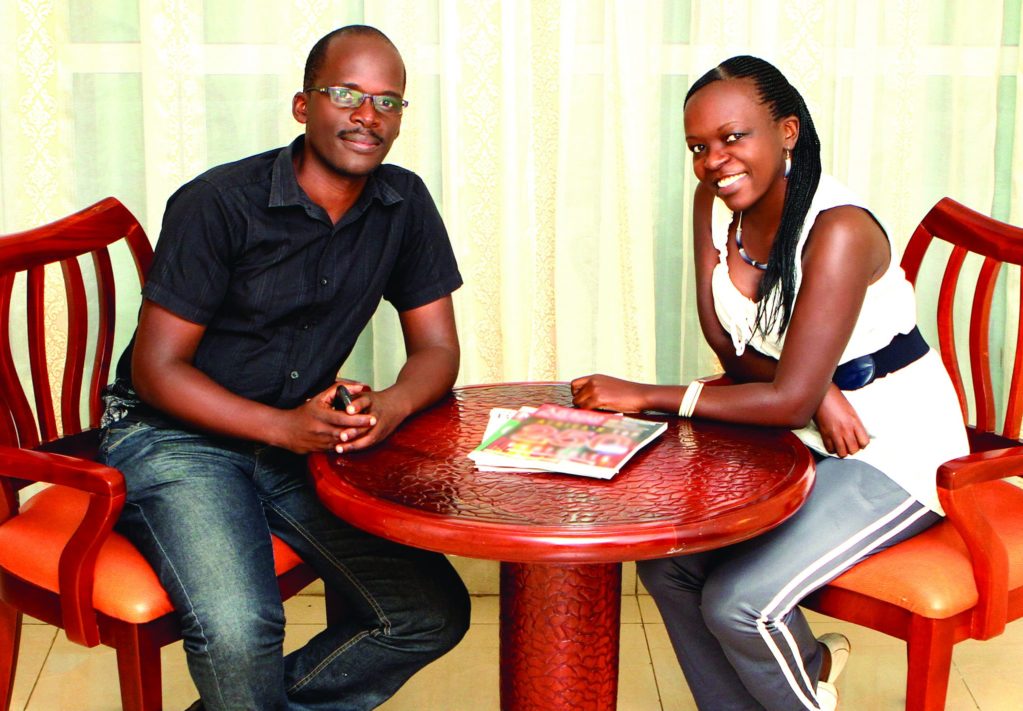It’s 3AM on a Saturday and Chance Tubane and Patience Nduwawe are stepping it up on the dance floor at K-club, a popular nightspot in Kigali’s upmarket Nyarutarama neighborhood. Tubane and her brother Nduwawe show off some pretty cool dance moves, swaying in blissful abandon, just like the hip, upwardly-mobile Rwandan thirty-somethings around them.
Ten years ago, Tubane would have never imagined this moment possible with her brother. Twenty years ago, Rwanda would have never imagined this moment possible with a young population of genocide survivors. They play hard and work harder.
Along with her brother, Tubane is the founder of Tohoza.com, a successful online classifieds directory in Rwanda that’s now among the country’s top three most popular websites.
Tubane and Rwanda have one thing in common: a story of loss, struggle and triumph. A story that cannot be recounted without returning to 1994, the year the country lost a million of its people to the genocide; the year Tubane thought she had lost her family forever.
She still remembers the murky details of the night of April 6, 1994, the night Rwanda’s Hutu President Juvenal Habyarimana was killed in a plane crash, and her father tiptoed into the bedroom and whispered fearfully to his family: “It seems the president’s plane has crashed. Not sure what will happen now.”
Loading...
Their home in Kacyiru was in the same neighborhood as the Parliament and within minutes of the announcement, was the center stage of the bloody Hutu-Tutsi crossfire that erupted.
“The shootings started right away, we heard people crying and screaming. We put mattresses against the walls and stayed in the corridor of the house,” says Tubane, who huddled with her parents and two brothers, Nduwawe and Confiance. Long moments of silence and despair followed.
“A couple of days later, one of the men came to our door and asked us to run, and I did. I ran to the church nearby, not realizing my family was not with me. I didn’t see them for months after that,” says Tubane.
The imagery continues to haunt her: her 11-year-old self in tattered clothes, looking for family, looking for food, on the run, “skipping countless bodies on the streets”, scenes even a Hollywood film will not be able to capture, says Tubane.
“There were piles and piles of bodies. I don’t know why they spared me. I escaped but thought my family was dead. I could imagine my dad being killed in his pyjamas, Confiance being killed whilst eating, and Patience killed
in silence.”
In reality, and unknown to Tubane then, they had all fled and survived, making the 150-kilometer trip in a pickup truck from Kigali to a relative’s home in Gisenyi, near Goma in the Democratic Republic of Congo (DRC), a home overlooking beautiful lakes and hills.
“I hope you were guilty guys. What were you thinking, leaving without me?” Tubane jests with her brother Nduwawe now.
It was a miracle to be reunited with her family in July when a relative found her and took her to them. The family moved to Goma to start anew, but there was more tragedy in store. Tubane’s mother, then 41, died of blood loss following surgery.
Tubane, who was always top of her class in school, was soon dispatched with her godmother, first to Cameroon, then Kenya and Tanzania, and to her aunt’s home in Belgium two years later.
Nduwawe, then 17, stayed on with his father and brother, but in 1996, on his way to Bukavu to take his university exams, was caught up in the violence in the eastern DRC, and was forced to spend nine years in the forest, his whereabouts unknown to his family.
“There were no roads, it was not possible for me to contact anyone, I led the life of a refugee in an equatorial forest,” says Nduwawe.
“I lit candles for nine years, asking the Lord to show us that Patience is alive. My prayers were finally answered,” says Tubane. A relative who had seen him helped track him down and he was able to return home to Kigali.
By then, Tubane had completed a Master’s degree in information technology and communications in Belgium. Smart, spunky and outspoken about women’s empowerment, Tubane is the epitome of the Rwandan woman today. Her brother Nduwawe is quieter in comparison.
After several entrepreneurial attempts, the siblings launched Tohoza in 2011, with only their savings. The website is an online advertising platform to help Rwandans find jobs, sell or rent homes and cars.
“We are determined to make the internet accessible to all Rwandans, including those who don’t have easy internet access and those who are not based in Kigali. We help people grow their business, and in turn, grow Rwanda’s economy,” says Tubane.
The siblings now want to replicate their success in Burundi, Kenya and Tanzania.
“Tohoza means ‘search and find’, like we did in our own life. I literally Tohoza-ed my brother,” laughs Tubane.
There is much they want to do, to change the face of online advertising in Rwanda, and also the perceptions of the country.
“One of the objectives of Tohoza is to tell a positive story, and show the world the new Africa. It is the generation after us that will make Rwanda a beautiful country,” says Nduwawe.
They have also launched a volunteer program where young people acquire practical skills on the field with them. In August last year, Tubane was honored as a young achiever by the Imbuto Foundation, an initiative of Rwanda’s First Lady Jeannette Kagame. Tubane also wants to start a foundation of her own for orphans. She only knows too well what it is like to be one.
“I have been with so many families in so many countries, but I was lucky, and always in good hands. No one harmed me.”
Tubane survived war, strife and separation. She now knows the purpose of this life granted to her.
Loading...
